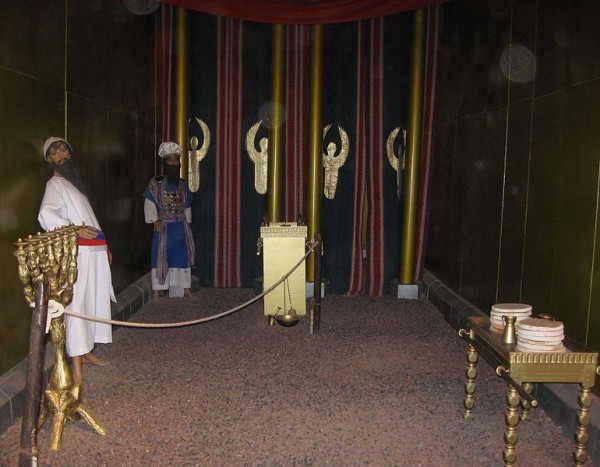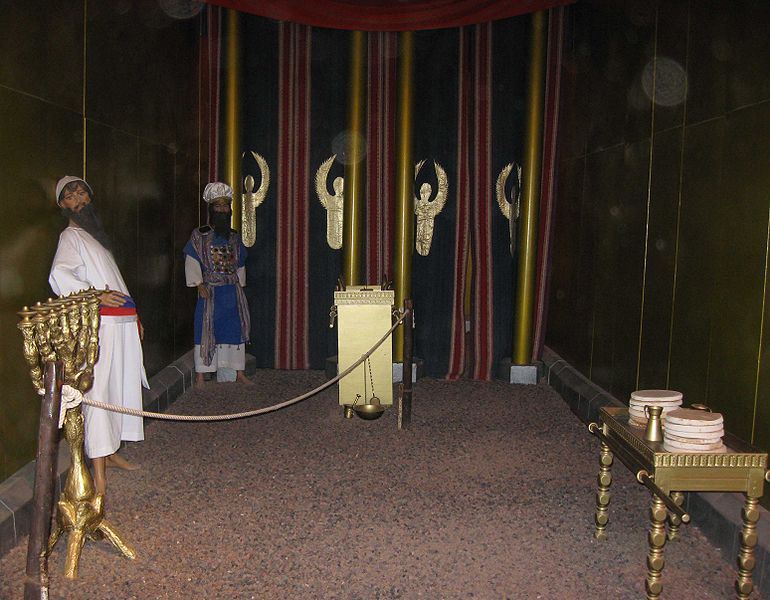
When it comes to tedious Torah portions, this week’s,Terumah, has few equals. It trucks on repetitively as Moses describes for us in intricate detail every step necessary for making the Ark of the Covenant, and then the Mishkan, or the Tent of Meeting where the Ark will be held. Every object that will be kept in the Mishkan, from a table for bread to a gigantic golden menorah is described in exact detail. These blueprints are extremely repetitive and reading it without falling asleep can be considered a major accomplishment. One might say, at first glance, that it could be difficult for anyone to squeeze a truly deep d’var out of it.
A few years ago, I was teaching a sixth grade Hebrew school class, with a requirement that the students lead a Shabbat service and give a d’var Torah. Of course they had to make it even more difficult for me by making this the portion we had to work with. Reading it as a class, we really grasped on to the idea that each person was required to contribute a “beka”, a half shekel. This meant that everyone, rich and poor alike, was required to give the same. Such a system, completely different from today’s income tax brackets, left it so that nobody would feel as if they were less or better than their comrades. It’s a nice idea, but I don’t know if it’s actually in line with what’s written. The text says to let each man give a beka, but immediately afterwards, goes on to say that each man whose heart prompts him may give whatever he wants.
We could make a statement that this shows just how great the power of God and God’s commandments were at that time. Everybody at Mt. Sinai was so awe-inspired that their heart prompted them to give voluntarily. Can you imagine several hundred thousand people gathered together, every single one of them more than happy to give over the hard earned cash they took from the Egyptians towards building something “religious”?
In context, however, it might not be quite as spontaneous or as generous as it sounds—after all, I can’t imagine someone experiencing a powerful event on the level of the splitting of the Reed Sea, let alone revelation, and not be willing to give every cent they own toward serving God, though I realize this may be a little optimistic. But I actually don’t think everyone gave equally, the beka was a minimum. After that, anyone could add what their heart prompted them to give. From where am I getting this? Well, first of all the text seems to insinuate a difference in how people gave by mentioning it twice in a row. Also, the building of the Mishkan required a wide range of resources, not just silver. Where did they get these supplies? Sure, some of it may have been bought with the silver collected from everyone’s beka, but I don’t think people were such capitalists back then, trying to wring every dollar out of God that they could. Rather, they gave these resources up willingly.
The Torah is supposed to be a blueprint for life, some would even say a blueprint for the world. We are given it, and we are told to live, or die, by it. Now, each of us as a Jew is already involved in the life that we as a people are building. Even if you aren’t religious, even if you feel as if you have no Jewish knowledge, chances are that Judaism and Jewish culture has had an effect on your life. Regardless of your desire for or awareness of it, you, too are a representative of the Jewish people. The seemingly small involvement with the Jewish world that may be your life, this is your beka. This, I believe, is what the Torah is trying to teach us here: that we are all considered contributors in making the better world that God desires.
Yet some of us can take things further, not because we feel commanded by our intellects or egos, but because we feel prompted by our hearts. When our heart prompts us, we can joyfully draw Judaism into our own lives, but it this isn’t a case of take with no give. Judaism can inspire us, making us better people working toward a goal of a holier world to come. Our blinds are already in, but when we willfully take Torah into our lives, we are increasing our bets, placing a larger portion of ourselves in a pot that will go toward placing the world in line with God’s designs. The text doesn’t say, “So and so gave this, and so and so gave that” because no actual contribution is necessarily better than the other. Each piece is as necessary as the other when each of us joins in with the rest of us to make something greater, something holy. It’s possible that you’ll never actually know how much good you’re doing for the world, but the more you give, the more you’ll become a part of that grand construction.
David Gutbezahl is a recent graduate of Ramapo College in Jersey.

